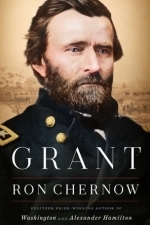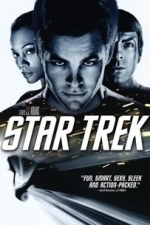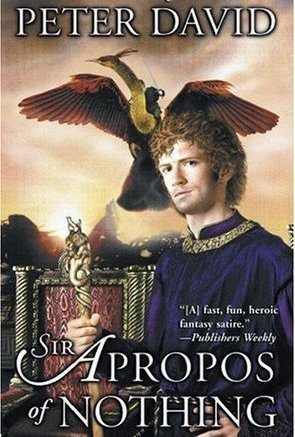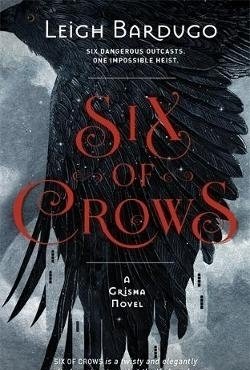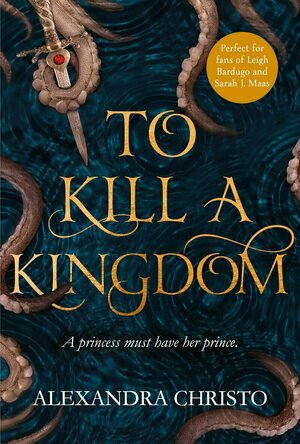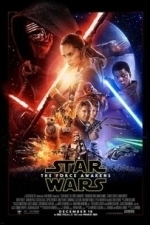Beethoven's Cello: Five Revolutionary Sonatas and Their World
Marc D. Moskovitz and R. Larry Todd
Book
In 1796 the young Beethoven presented his first two cello sonatas at the court of Frederick William...
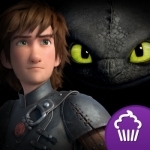
How To Train Your Dragon 2 (Official Storybook App)
Entertainment and Education
App
GET READY TO EXPERIENCE ANOTHER MAGICAL DRAGON ADVENTURE STORY! * Join cool dragon hunter Hiccup...
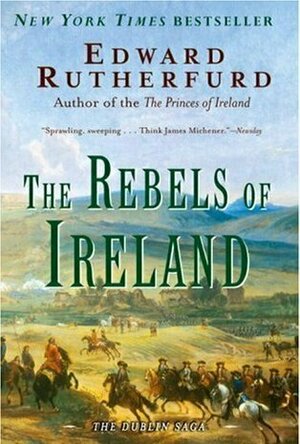
The Rebels of Ireland (The Dublin Saga, #2)
Book
The Princes of Ireland, the first volume of Edward Rutherfurd’s magisterial epic of Irish history,...
Bob Mann (459 KP) rated Star Trek (2009) in Movies
Sep 28, 2021
We saw Kirk’s death in “Generations” – here we see his birth, with a pre-Thor Chris Hemsworth as his heroic Dad!;
The nasty Ceti Eel creatures are back from “The Wrath of Khan”!;
We see the historic event of Kirk beating the Kobayashi Maru starfleet test;
And we see all of the key characters meeting for the first time.
There are some surprises though. The fact that Spock and Uhuru are ‘a thing’ adds a spice to the film that feels like it messes with existing Trek lore. And similarly the destruction of Vulcan – giving this the highest body count of any of the movies! – has to be explained away with the old ‘parallel timeline’ ploy.
The action scenes work well, reliving the ‘submarine warfare in space’ elements that worked so well in the original series and the “Wrath of Khan”. A ‘space drop’ onto Nero’s ‘drill’ is particularly thrilling.
The casting is just about bang on, with Chris Pine pitch perfect as Kirk and Karl Urban particularly impressive as ‘Bones’ McCoy (although the evolution of the nickname – shown here – feels overly forced). The one character that I don’t get on with here is Simon Pegg’s Scotty: might be controversial, but he just doesn’t work for me.
Finally, the music by Michael Giacchino is a favourite score of mine. Simply thrilling and brilliant. I was lucky enough to hear it played live at a showing in the Royal Albert Hall a few years back, where both Giacchino and Abrams appeared on stage – – a truly memorable evening.
It’s not perfect. The whole “transportation of Scotty into the water works” irritates me enormously for some reason. And it’s somewhat glossed over what Nero and his crew have been doing for the 25 years while Kirk grows up: (Nero: “Man, I’ve finished ALL of my Sodoku books… when is this lockdown EVER GONNA END??”). And the JJ ‘lens flare’ is used to a level here that is mind-blowingly distracting! But as a reboot, in the main, it works.
Mandy and G.D. Burkhead (26 KP) rated Sir Apropos of Nothing in Books
May 20, 2018
So when I picked up Sir Apropos of Nothing, I did so based on the title pun and the back-of-the-book synopsis that promised “a berserk phoenix, murderous unicorns, mutated harpies, homicidal warrior kings, and – most problematic of all – a princess who may or may not be a psychotic arsonist.” I expected another lighthearted riff on the familiar archetypes. Murderous unicorns? Unicorns are not typically described as such! Oh teehee, how unexpectedly humorous!
Sir Apropos of Nothing is a satirical fantasy, just like it promised, though at times it’s hard to tell how much of the story is played for laughs and how much is played straight. See, the thing about satire that’s easy to forget at times is that it’s not synonymous with buffoonery. Make no mistake – Apropos is a funny book, full of witty dialogue and groan-inducing puns. It’s a book that takes great delight in lampshading traditional fantasy tropes and archetypes, as well as the entirety of Joseph Campbell’s Hero’s Journey idea. But it is not always a silly lampshade; sometimes a cliche or trope is pointed out to have its inherit ridiculousness laughed at, and sometimes it is pointed out because it is causing real and lasting pain or damage, either to the society in which it is set or, more often, to the titular Apropos himself and his ever-degrading esteem of both the people around him and himself.
The tone, at first, is hard to pin down. The story starts in media res with the main character being caught by a knight while in mid-coitus with that knight’s wife and escalates from there. The second chapter opens with a fourth wall-breaking narrative admission by Apropos himself that this was done with the express purpose of catching your attention, and now we’re going back to cover Apropos’s childhood, which ends up being equal parts dark, tragic, punny, and conveniently trope-filled – all of which Apropos, as narrator, approaches with the same resigned, blasé outlook.
If this sounds a bit jarring, well, it kind of is. Early on, I wasn’t sure what to think of where the story was trying to go or what I was expected to feel about it. After the first turn from cliché to dark and visceral to light and punny, all within a few pages, I caught myself thinking, “Crap, is this book gonna try and mix goofy jokes with serious drama and thoughtful moral quandary?”
The answer is yes. And it pulls it off fantastically.
This is due in large part to the interesting depths of the antihero, Apropos, who seems to be so named purely for the joke in the title. In Apropos we see a deep sense of justice and rightness that is entirely eclipsed by an even deeper cynicism and an unshakeable instinct for self-preservation. His life is objectively terrible, but rather than brood and lament, he adjusts. He keeps his head down when he can, weathers abuse when he can’t, and learns to deal with the constant shit storm, all the while bottling his growing anger and resentment at a world that would allow such amounts of suffering and hypocrisy to go unchecked. The fact that he himself becomes a selfish, hypocritical, and generally awful person is not lost on him, and the result is a flawed, unheroic, pathetic coward of a protagonist, a magnificently multifaceted bastard who doesn’t spare even himself from his vast and withering contempt.
And it’s a blast. It really is. Apropos is refreshingly pragmatic and unabashedly pessimistic, a welcome change from the typical righteous-yet-humble heroes of traditional fantasy, or even the loveable and untalented everyman in over his head of traditional fantasy spoofs. Despite a portentous birthmark (on his ass, no less) and beginnings that are not “humble” so much as “poverty of the dirtiest kind,” Apropos is everything a hero should not be short of outright evil.
And this, as it turns out, is entirely the point. This is where the satire, funny or otherwise, really shines through. This is the crux that elevates Sir Apropos of Nothing from a generically self-aware fantasy story to an original and memorable subversion of storytelling as a whole.
Without giving too much away, there comes a point in the plot where Apropos realizes that the events surrounding his miserable life are part of a heroic tale that has been preordained by Fate and is now being epically written out by Destiny. And despite his birthmark, his tragic past, and his mother’s constant reassurances that he has some sort of great destiny hovering over him, he is not the hero. He is only a minor character. A walk-on role on the hero’s stage. A brief pit-stop along the hero’s journey. An NPC whose dreams, desires, and continued existence are so far below importance to the story as to be utterly negligible.
And once this finally clicks with him, he violently, brazenly rebels against it. He gives an emphatic middle finger to Fate’s ideas and sets about making Destiny sit up and take notice of him again. He momentarily and violently overcomes his own abject cowardice just long enough to find a way to completely wreck the traditional heroic ballad in which he lives, all on the basis that, dammit, the world owes him more than this, and nobody should be so miserably cursed as to live their entire life as a foil character.
At this point in my own reading, I didn’t know whether to cheer him on or worry about the repercussions of his actions, because he doesn’t suddenly become heroic when this happens. He’s exactly as much of a selfish, lying bastard as before, and however bad you feel for him, you can completely understand why he was never cast for this role in the first place. Add to this the complete disregard of the author for following what seems to be the obvious progression of events in favor of twists that take you completely by surprise, but still make complete sense and arise organically from the story itself, and you eventually give up thinking that you have any sense of where the story’s going or how any event is going to play out. From beginning to end, it feeds you familiar ideas and then completely subverts them, introduces clichés and then proceeds to tear them apart, and you laugh and pity and feel something the entire way through.
In short, Sir Apropos of Nothing is a book that will keep you turning page after page – not necessarily because of the gripping drama (although it has that) or because of any breezy humor (although it has that too), or because the narration itself oozes suspense (although it often does), but because, with the rapid infusion of new and creative ideas and the hidden depths of character constantly bubbling to the surface in everyone involved, you honestly never know what’s going to happen next. If you like fantasy and can stand to have your expectations messed with, Apropos is certainly apropos.
Dana (24 KP) rated Six of Crows in Books
Mar 23, 2018
Can we start out with this cover? It is absolutely gorgeous! And the dyed edges on the paper make me want to weep with joy. I love books that do that, but it isn't done enough in my opinion.
Okay, so on with the review.
I actually really enjoyed this book. It has been a while since I was able to actually read something for fun, so this was awesome to be able to pick up and devour.
I was kind of skeptical about it because there are so many spin-off series that don't work as well as the originals and make me start to dislike the series. This, however, exceeded all expectations. I actually think I enjoyed this book more than the originals!
The characters were well fleshed out and all had interesting quirks about them. I loved being able to delve into each character and their backstories when it was their turn to narrate. I do wish that some things were told a bit earlier, just to clear up any questions I had, but I think it still worked very well when those parts were told to the audience.
One thing that I really appreciate is that there are no love triangles!!! Yay!!! Also, bad ass females who don't need the male characters to validate them! And inclusiveness in sexuality!! Just, so much love for this book.
I enjoyed how I was able to root for the criminals who would, in all honestly, probably be seen as the villains in any other novel. It was refreshing for the characters to know they aren't the heroes, but are still able to be heroic in their own way.
Minor spoilers ahead!!! Turn back if you have not read the whole book!!!!
I loved that there were references to the characters in the Grisha trilogy!! When I recognized their names, I did a little happy dance.
There was a small reference (that may have been just me wanting it to be there) to The Breakfast Club on page 332.
My favorite passage from the novel would have to be from one of Inej's chapters on page 136 where she is thinking about true love. It was so interesting to see those feelings written out in a way that I would have never thought to see it as!
Overall, I absolutely adored this book and I can't wait for the next one to come out. I am mad at myself that I didn't read this sooner!
Micky Barnard (542 KP) rated To Kill a Kingdom in Books
Dec 6, 2018
Firstly, in a sea of YA fantasy series, I want to shout from the rooftops that this is a full and rounded standalone. Yes, I said standalone and I felt complete by the end, so it does what it says on the tin.
Sirens are the name of the game in this book and Lira is a scrappy, fierce and murderous siren princess known across the world as The Princes Bane. Her mother, the Sea Queen is her nemesis but she is bent to her mother’s will. The Sea Queen is a rather frightening, violent dictator without ethics or scruples. Lira, initially with little to recommend her, undertakes a change about which I don’t want to say more. The character development was superb.
“The crew said her hair was as red as hellfire.”
“The Princes’ Bane is the greatest monster I’ve ever known, and the only one who’s escaped death once I’ve set my sights on her."
Elian is more pirate than Prince of Midas, on a self-inflicted crusade to rid the world of sirens. There’s a lot more to like about Elian and he cuts a swarthy, heroic figure. The ship the prince operates from, holds a crew of friends, protectors and loyal sailors, they made for good reading. When Elian and Lira eventually cross paths, it’s not pretty but it’s explosive, violent and hateful.
“It’s you.”
“Look at you. My monster, come to find me.”
The story took hold of me from the first chapter and was a thrilling voyage across oceans and into unusual lands. I was interested throughout and dying to see what would happen. The romance is subtle but still kicks a punch, nevertheless, it doesn’t overwhelm the story.
"Me, my ship, and a girl with oceans in her eyes."
I had a little niggle in this book regarding how the dialogue was written, my problem being that it is consistently unclear when the dialogue character changes, which stops your flow while you work out who’s talking. However, this is just a niggle and wasn’t a major issue.
I am truly excited about this debut, it’s uniqueness and strong writing of characters and story direction. YA fantasy lovers are going to rave over this, I’m sure.
I voluntarily read an early copy of this book.
LeftSideCut (3776 KP) rated Star Wars: Episode VII - The Force Awakens (2015) in Movies
Dec 10, 2019 (Updated Dec 10, 2019)
The new characters take centre stage here - the most important of course being Rey. It's great that in this day and age, young girls all over the world have a strong female protagonist to look up to within Star Wars. There have of course been some great heroines before, but Rey is well developed over the course of TFA, is extremely likable, incredibly badass, and represents the ever heroic light side.
Over on the dark side, we are introduced to Kylo Ren, a villain who idolises the now legendary Darth Vader, to the point where he even wheres a mask. Ren feels emotionally unstable and dangerous throughout, and gives a strong villain for this new trilogy.
We also have Finn, a Stormtrooper who defects after seeing war atrocities commuted by the First Order. This storyline feels important, and it's nice to see that Stormtroopers are human under the armour.
And we also have Poe Dameron. Poe is my least favorite out of the new characters in all honesty. He doesn't feel all that relevant, but he's entertaining enough.
The inclusion of Chewbacca, Han Solo, C3-P0 and Leia, give us a nice shot if nostalgia, as all of our protagonists fight to thwart The First Order, and search for the AWOL Like Skywalker at the same time.
The set pieces and action sequences are nothing short of breathtaking. The CGI is top notch, and Star Wars has honestly never looked this good. All the great thing that JJ Abrams bought to his Star Trek reboot are replicated here and then some.
Saying that, he does play it safe when it comes to the plot, and a lot of the film has a familiar feeling to it. A handful of plot elements borrow heavily from A New Hope, sometimes feeling like a re tread, but for those of us who are less cynical, we can always view it as a love letter instead, from a man who adores Star Wars just as much as we do.
Once again, John Williams provides a fantastic score, and just like that, Star Wars is exciting again.
TFA has flaws here and there, but it's the best Star Wars movie since the original trilogy concluded, and it puts a huge smile on my face.
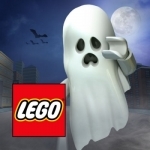
LEGO® City game
Games and Entertainment
App
BE A CREATIVE LEGO® CITY HERO! The LEGO® City app is a creative mission-based game for brave,...

